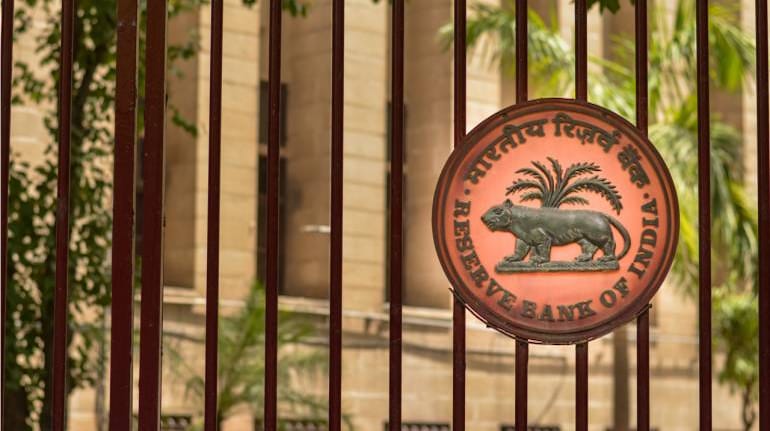



In the monetary policy meeting of August 2023, the Monetary Policy Committee (MPC) of the Reserve Bank of India held policy repo rates unchanged at 6.5 percent. While the policy stance was widely expected to continue, markets were surprised by the RBI tweaking another policy instrument, the cash reserve ratio (CRR).
The RBI announced that scheduled banks will be required to maintain an incremental CRR (I-CRR) of 10 percent on the increase in net demand and time liabilities between May 19, 2023 and July 30, 2023. The I-CRR is meant to check on the rise in liquidity due to the withdrawal of Rs 2,000 banknotes from circulation. And, so even as the RBI kept policy rates unchanged, the I-CRR is expected to tighten interest rates in money markets for the next few days. In a way, this is like tightening monetary policy without saying so. What explains this policy by the RBI?
The answer is that apart from tweaking the CRR, the RBI continues to change it outside the remit of the MPC. The MPC releases a resolution statement after every monetary policy meeting where it votes on the stance of the policy repo rate. Based on changes in the repo rate, the marginal standing facility and standing deposit facility are changed automatically. However, changes in all other monetary policy instruments are mentioned in the governor’s statement. Ideally, one should see the MPC take into account all the monetary instruments as all play a role, but this is not the case in India.
Gaps In The RBI ActThe reason why we see these parallel and different communications are because of the gaps in RBI Act, 1934. The RBI Act was amended in 2016 to include the institution of an MPC (a new Chapter III-F was added to the Act) and specify its functions. It was decided that the government will give the RBI an inflation target and the MPC will work towards achieving the target. Section 45ZB(3) of the Act specified that “The Monetary Policy Committee shall determine the policy rate required to achieve the inflation target”. Section 2 (cccci) of the RBI Act defines policy rate as “the rate for repo-transactions under sub-section (12AB) of section 17”. The latter section defines 'repo' as an instrument for borrowing funds by selling securities issued by the central and state government.
Based on all these legal definitions, the MPC has also adopted the repo rate as the policy rate for its monetary policy. But then the central bank has so many other monetary policy instruments: cash reserve ratio (CRR), statutory liquidity ratio (SLR), open market operations (OMOs), bank rate (BR) and other fine-tuning operations. This implies that each time the RBI changes monetary policy instruments other than the repo rate, it does not require a vote of the MPC.
In an earlier article written in 2020, I had listed several instances of the RBI using these non-repo instruments which did not require the vote of the MPC. For instance, the RBI decided to use Operation Twist where it sold short-term bonds and bought long-term bonds to lower the long-term interest rates. The RBI implemented long-term repo operations (LTRO) to provide long-term liquidity. The RBI waived off maintenance of the CRR for retail loans given for automobiles, residential housing and to micro, small and medium enterprises (MSMEs). Since 2020, the RBI has lowered the CRR to 3 percent and raised it back to 4.5 percent without really bringing the MPC into the picture.
Central Board’s InfluenceThe problem does not end here. The RBI also has a Central Board, which though responsible for the governance of the central bank, can also take highly important decisions that impact monetary and liquidity conditions. We know that the Central Board decided on the demonetisation of November 2016 which led to a flood of liquidity in the banking system. There is also a strong likelihood that the Central Board was behind the withdrawal of the Rs 2,000 notes as the decision was followed soon after the Central Board meeting on May 19, 2023.
Globally, we see two things. First, the main monetary policy body takes all the decisions pertaining to interest rates. So, we see the Federal Reserve’s Federal Open Market Committee (FOMC) take all the decisions pertaining to changes in interest rates and other ratios. It is the same for the European Central Bank, the Bank of England and so on. Second, the number of monetary instruments is not as many as seen in the case of the RBI. During the financial crisis, central banks came out with new instruments/measures that were rewound once the crisis was over. In India, there are many policy instruments which have been around for a long time and some or the other interest rate is connected to the policy rate/ratio.
To sum up, while the responsibility of the RBI’s monetary policy lies with its MPC, the committee’s powers are limited as most instruments are outside its remit. Apart from the MPC, RBI’s internal management and the Central Board take decisions which impact the monetary system. Ideally, all instruments that pertain to monetary policy and liquidity management should be brought under the ambit of the MPC. It is highly likely that the MPC is informed of these decisions and changes in the instruments. However, they should be allowed to vote and discuss tweaking these other instruments as well.
Amol Agrawal teaches at Ahmedabad University. Views are personal, and do not represent the stand of this publication.Discover the latest Business News, Sensex, and Nifty updates. Obtain Personal Finance insights, tax queries, and expert opinions on Moneycontrol or download the Moneycontrol App to stay updated!
Find the best of Al News in one place, specially curated for you every weekend.
Stay on top of the latest tech trends and biggest startup news.